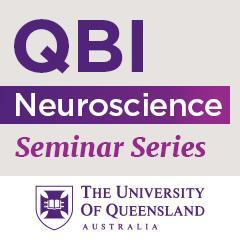Dr Rachel Templin, UQ : "Circular polarization vision in stomatopod crustaceans"
Speaker:
Dr Rachel Templin (PhD Exit Seminar)
Queensland Brain Institute, University of Queensland
Title: "Circular polarization vision in stomatopod crustaceans"
Abstract:
The stomatopod crustaceans (mantis shrimps) have complex visual systems which, like other crustaceans, may rely more on the information they can receive from polarization than colour. This is evident from the range of polarization sensitive areas of their eyes, which include the linear polarization sensitive hemispheres and two rows of circular polarization sensitive photoreceptors in the midband region (midband rows 5 and 6). Circular polarization vision (CPV) is a visual ability unique to stomatopods and unlike linear polarization vision, is not well understood.
My thesis focused on building our understanding of the CPV system through the combination of behavioural and anatomical techniques. Electron microscopy and optical modelling provided insight into the function of the eighth retinular cell (known as R8), which is essential for CPV. It revealed that despite a common assumption, not all species of stomatopod are likely to possess CPV. Some species are maximally sensitive to a form of elliptical polarization, instead of circular, resulting in a new type of polarization vision. This finding is further supported by a range of behavioural discrimination experiments in H.trispinosa, a small burrow dwelling species. The variation observed in maximal sensitivity and discrimination ability between different species highlight the possibility that species specific roles exist for midband rows 5 and 6.
It is also critical to look beyond the retina and understand how visual information is processed. The final aspect of my thesis focused on the neuroanatomy of the first optic neuropil, the lamina, for rows 5 and 6. Using a method new to stomatopod neural investigation, serial block-face scanning electron microscopy, development of a 3D reconstruction of individual lamina cartridges has allowed for identification of cell types and neuronal pathways beyond the retina.
About Neuroscience Seminars
Neuroscience seminars at the QBI play a major role in the advancement of neuroscience in the Asia-Pacific region. The primary goal of these seminars is to promote excellence in neuroscience through the exchange of ideas, establishing new collaborations and augmenting partnerships already in place.
Seminars in the QBI Auditorium on Level 7 are held on Wednesdays at 12-1pm, which are sometimes simulcast on Zoom (with approval from the speaker). We also occassionally hold seminars from international speakers via Zoom. The days and times of these seminars will vary depending on the time zone of the speaker. Please see each seminar listed below for details.



